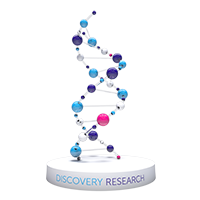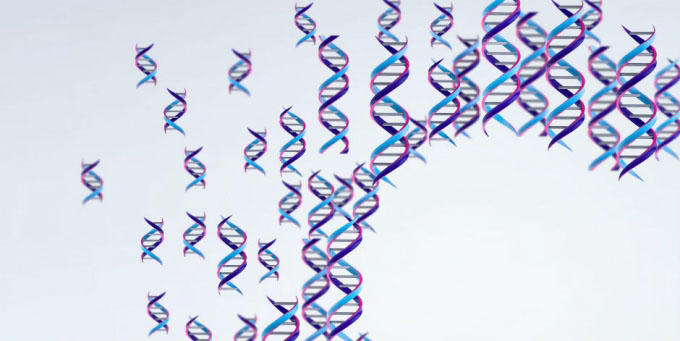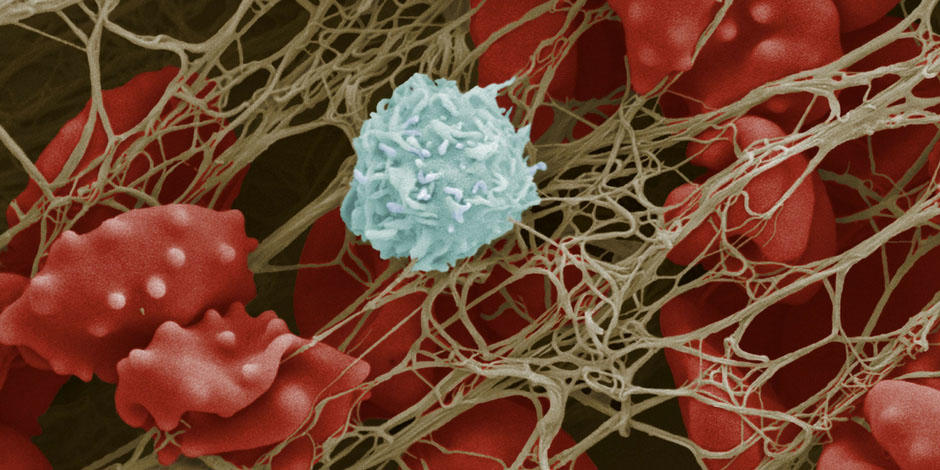Cancer Immunology Project Awards
About this scheme
Key information
*This funding scheme is closed and is no longer accepting applications. See our available opportunities here.*
Applications are accepted from:
- Scientists, clinicians or health care workers from UK universities, medical schools, hospitals and some research institutes.
- The lead applicant (PI) must be an immunologist who should not have a demonstrated track record in cancer research.
- Collaborations with cancer researchers/clinicians are strongly encouraged to deliver the project but are not a mandatory requirement.
If you have a demonstrated track record in cancer, or are a group leader at a CRUK core-funded Institute, you are not eligible to apply for this award as the lead PI, but may act as a co-investigator or collaborator.
The aim of the scheme is to build capacity in cancer immunology; therefore, if you already have a demonstrated track record in cancer research, our other opportunities in discovery research may be more suitable for your research.
Scientific remit
Your proposal should address key questions in the immunology of cancer. Applications can be in any area of immunological research, providing the cancer relevance is clearly articulated in the proposal, including any of the following key areas:
-
Cellular and molecular immunology: including but not limited to mechanisms of tolerance, the regulation of immune function, the development of memory, the interaction of immune cells with tissues and enhancing the immune system’s ability to detect and destroy cancer.
-
Inflammation, allergy, transplantation and autoimmunity: how the basic understanding of relevant mechanisms involved could drive forward our understanding of cancer as well as how sensing of endogenous changes in immune homeostasis, such as tissue damage, impacts on the sensing and development of cancers.
-
Immune response to infection: including but not limited to immunity and disease susceptibility/resistance and the development of adverse infections in response to immune therapy or biological drug intervention.
If you are looking for support for the discovery and development of new biotherapeutics or immunomodulatory agents, explore our opportunities in drug discovery and development.
You can apply for funding of up to £300k, which can be used for:
- Salaries for researchers and technical staff
- Running expenses
- Equipment
We are also giving applicants to this funding scheme the opportunity to opt-in to a new multi-journal pilot project on Registered Reports.
How to apply to this scheme
*This funding scheme is closed and is no longer accepting applications. See our available opportunities here.*
Application process
- You must email us with a one-page summary of your proposal, a list of potential collaborators and your CV. We advise you do this at least one month before the deadline.
- If your proposal is eligible, we will invite you to make a formal application through our electronic Grants Management System (Flexi-Grant)
- Your application will be assessed by an Expert Review Panel.
- The final funding decision will be made by our Discovery Research Committee.
Before you begin your application
Please read:
The Discovery Research Committee will judge your proposal based on:
- Scientific excellence: all applications must have a strong scientific rationale, as well as appropriate experimental design and statistical analyses, to support the proposed research proposal.
- Cancer relevance: value of the proposed work in advancing the fundamental understanding of cancer or improving how cancer is diagnosed and/or treated.
- Track record: the lead applicant and/or team members should have an excellent track record and potential to produce outstanding results.
- Excellent team and collaborative environment: suitability and feasibility of the Lead Applicant(s) (and supporting roles) to carry out the proposed research with access to the resources and facilities required for the successful fulfilment of the Award. The added value of the proposed collaboration and the individual contributions, as well as the steps taken to ensure an effective collaboration.
- Resources requested: the costs requested in an application should be for the direct costs of the research and be reasonably justified in line with the experimental plans, leveraging existing resources where appropriate.
The Committee will also consider how your proposed research aligns with our strategic priorities, as set out in our Discovery Research Statement of Intent and our broader Research Strategy.
The 5 year rolling success rate (financial year 2017-2022) from application to funding for this scheme is 15%.
Cancer Research UK contact details
When this funding scheme reopens, please contact the research funding manager for this scheme to discuss your proposal before starting your application.
Sowmiya Palani PhD - Research Grants Manager
Tel: 020 3469 5231
More opportunities for discovery researchers

We support a broad portfolio of discovery research, including basic biology, genetics and immunology, biomarker discovery and preclinical studies, and engineering and physical sciences applied to cancer. We have a variety of grant funding and other opportunities to accelerate your research.
Disability and accessibility support
We offer additional support for grant applicants and grant holders who are disabled or have a long-term health condition.
Environmental sustainability in research
Researchers applying to our funding schemes from 2026 will be required to demonstrate the environmental sustainability of their laboratories by obtaining green lab certification.
Case studies
Creating a genomic map of the immune response

Sarah Teichmann and Jacqui Shields have teamed up to create a genomic map of the immune response to cancer, making the most of their complementary skills in immunology and cancer research.
Discovering underlying immunological questions in cancer

Andrew Mellor is using funding from our Immunology Project Award to explore the link between dying cells and inflammatory responses that promote cancer development.

